The College of Whispers is a unique subclass for the Bard that focuses on making the class highly effective as an infiltrator, information gatherer, and infiltrator. It only gets one combat feature across the entire subclass, so I don’t recommend going with this subclass if you are playing in a D&D campaign that focuses on combat or a more traditional combat/roleplay balance. However, if your Dungeon Master has a campaign planned with lots of intrigue, espionage, and roleplaying, playing a College of Whispers Bard is a lot of fun. Welcome to a College of Whispers 5e Guide.
Key Info Up Front
- Book: Xanthar’s Guide to Everything
- Feature Levels: 3, 6, 14
- Party Roles: Face, Investigator
College of Whispers Overview
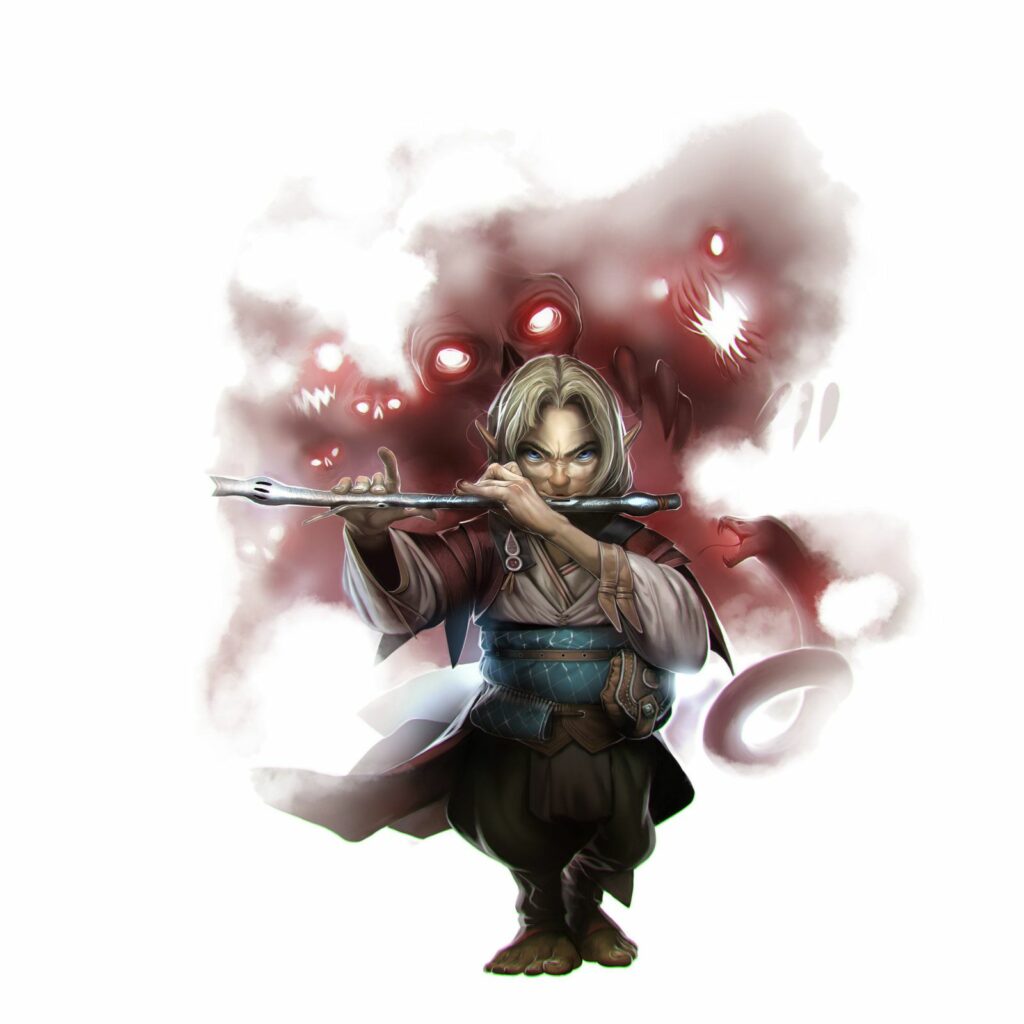
Bards that study with the College of Whispers use the generally welcoming disposition toward bards to their advantage. Since bards are usually known as jovial sources of stories and music in all situations, they have an easier time saddling up to nobles or infiltrating closed circles. Nobody suspects the charming fellow in the corner with a lute as the spy plotting against them.
So, College of Whispers Bards use their unassuming outward appearance to get close to targets before using twisted spells and magic to work their way into people’s minds and subconsciouses. This gives them an incredible amount of control over others in social situations but does leave them slightly underpowered if you’re looking for a Bard that can thrive in multiple combat encounters in a single session or are handy throughout an entire dungeon crawl.
Ability Scores
Like any Bard, Charisma should be the absolute priority when building a Colle of Whispers Bard. This is because your character will be the most useful in social situations and through acting as the Face of your party. So, Charisma will go a long way for this subclass while also helping you with all of your spellcasting.
After Charisma, your next priority should be Dexterity. This will help you avoid damage in combat, traverse difficult-to-reach areas, and will help you take full advantage of your Psychic Blades subclass feature. While combat may not be your primary focus as a College of Whispers Bard, I have always found it a good idea to at least hold your own when fighting in 5e.

After Dexterity, you should put a healthy amount of points into Constitution to ensure your hit points aren’t too low. After that, I recommend focusing on either Wisdom or Intelligence, depending on what your party needs most. If you don’t have a party member that can keep an eye out for ambushes, focus on Wisdom. If you have to fill the role of knowing everything for your group, go with intelligence. Either way, Strength should be your dump stat as you’ll be using Dexterity for attacks anyway.
Backgrounds
Choosing the background of your Bard is a bit more interesting with the College of Whispers than other subclasses as finding a reason why your character became a spy.
I always recommend picking a background that makes sense with your character’s backstory, but if you need some help thinning down your options or want to make as efficient of a build as possible, some work better than others.
- Acolyte (Player’s Handbook): This background works pretty well for any Bard, as its skill proficiencies are useful, and the extra languages will help you communicate with more people throughout the campaign.
- Cloistered Scholar (Sword Coast Adventurer’s Guide): I only recommend taking this background if you are filling a knowledge role for your party, as its knowledge skill proficiencies won’t be as valuable as what you can get from other backgrounds.
- Courtier (Sword Coast Adventurer’s Guide): This background is a fantastic option for the College of Whispers Bard because of its bonus Face skill proficiencies and language.
- Guild Artisan (Player’s Handbook): This background comes with some solid skills for a Face, but it does come with tool proficiencies that will be largely useless for you.
- Urban Bounty Hunter (Sword Coast Adventurer’s Guide): This background can be customized to fit your preferred playstyle exceptionally well.
Skills
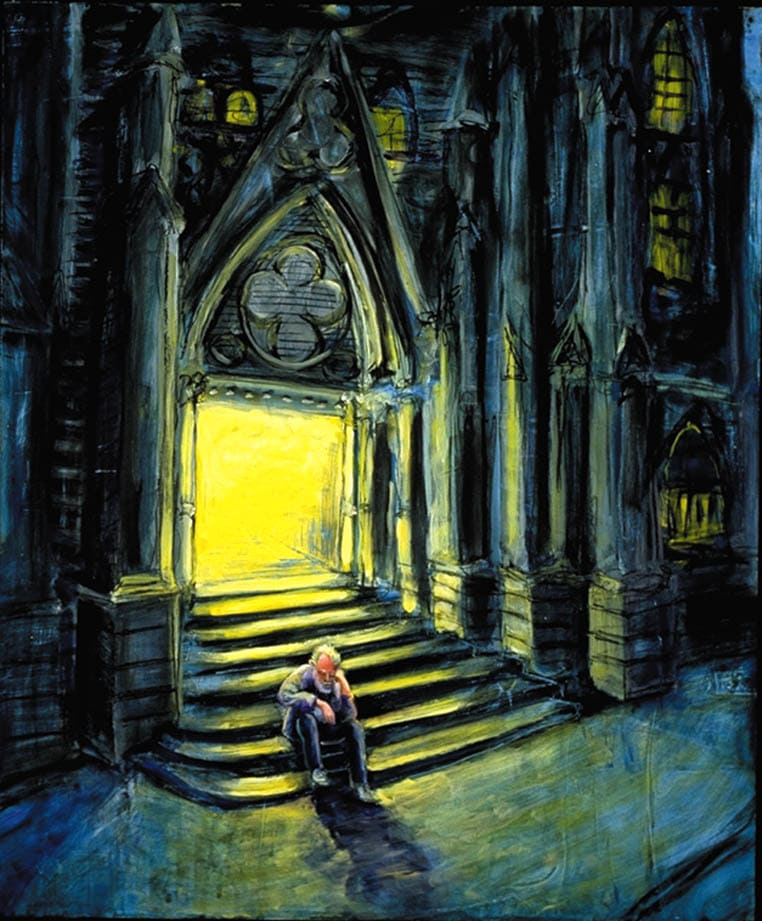
When you make a 5e Bard, you can pick from any skills in the game to become proficient. The ones you choose will largely depend on what gaps your background leaves, but either way, this is the order I recommend prioritizing the skills.
- Persuasion: This is a crucial skill for any Face to have, and as a College of Whispers Bard you’ll be able to take full advantage of it.
- Intimidation: Another crucial skill for Faces to use for getting NPCs to do what you want them to.
- Deception: Faces use Deception all the time to keep things secret, which you will likely have to do all the time as the party’s Face, especially in a politics-heavy campaign.
- Insight: This skill is extremely useful for determining whether or not you are being lied to, which you will likely have to face repeatedly as a Face.
- Perception: Perception is always useful no matter what role your character fills to prevent ambushes, detect traps, and notice as much as possible.
- Investigation: An investigation is an excellent tool for characters gathering information. It can be underused in some campaigns, but if you’re playing one that fits the College of Whispers Bard it will likely come in handy.
- Stealth: Since you’re already putting some points into your Dexterity for the Psychic Blades feature, you can also take advantage of Stealth to keep hidden or search areas you shouldn’t be.
- Arcana: Arcana is arguably the most useful knowledge skill in 5e and is used to check your character’s knowledge of magical items and spells.
- Religion: Religion is another useful knowledge skill, but it isn’t as valuable as Arcana.
- Acrobatics: This skill takes advantage of your Dexterity score for climbing and avoiding grapples but is still situational.
- History: History is another knowledge skill that can be useful but is also highly situational and requires your Dungeon Master to have the history of their setting in mind.
- Nature: Nature can be somewhat useful, but you’ll likely only be able to use it rarely.
- Animal Handling: Another highly situational skill that another party member will likely have instead of you.
- Athletics: Athletics is the Strength peer of Acrobatics, but with Strength being your dump stat, you shouldn’t bother with this one.
- Performance: It may seem weird for a Bard to not have proficiency in the Performance skill, but the skill is pretty useless.
- Sleight of Hand: Sleight of Hand can be situationally valuable, but you’ll probably have a Rogue or some other stealth-focused class to do it for you.
- Survival: Survival is rarely helpful and not worth investing in as a College of Whispers Bard.
- Medicine: I’ve said it a million times before, and I’ll repeat it, Medicine is a nearly useless skill because you should always use magic for healing instead.
College of Whispers Bard Features
Psychic Blades

Level: 3
This feature represents your control over your foes’ minds, allowing you to attack their minds directly after making a successful weapon attack. To do so, you must expend one of your Bardic Inspiration Dice, dealing psychic damage. The damage is 2d6 at level three, 3d6 at fifth level, 5d6 at tenth level and 8d6 at fifteenth level.
This feature doesn’t seem bad at first look, but compared to your other options as a Bard, it is pretty lackluster. The damage is fine, but getting the most out of the feature requires you to heavily invest in martial combat. The extra dice the feature gives you can also be outperformed by spells that don’t also eat up one of your Bardic Inspiration Dice.
Words of Terror
Level: 3
This feature allows you to weave some of your dark magic into otherwise normal speech. This will enable you to speak to a target for one full minute, forcing them to make a Wisdom Saving Throw against your spell save DC.
If they fail the saving throw, they become frightened of you or any creature of your choice for up to one hour unless they take damage or see their allies taking damage.
Mantle of Whispers

Level: 6
This feature begins with you witnessing a humanoid die within thirty feet of you. Then, you can capture its shadow, which you can use later as an action to take on the persona of the shadow completely. This feature effectively acts like a better version of the disguise self spell. This is because it also gives you access to knowledge the person would have shared with a close acquaintance, but it can only be used once per short or long rest.
Shadow Lore
Level: 14
This feature is my favorite of the College of Whispers Bard. It allows you to force a target to make a Wisdom saving throw, allowing you to tap into their greatest fears on a failed save. With that knowledge, you can control them, making them obey your every command for up to eight hours. You can only use this feature once per long rest, but if you’re creative with how you use it, you’ll get plenty of utility.
College of Whispers Races
When making your character, you can choose any race that catches your eye, but if you want to make the most of your College of Whispers subclass, some options are stronger than others. These are my favorites for the subclass.
Air Genasi

Book: Mordenkainen Presents: Monsters of the Multiverse
This race can work very well for College of Whispers Bards since it comes with Feather Fall for free as well, as other spells that Bards don’t normally get access to. It also comes with lightning resistance and darkvision, which are always nice to have around.
Changeling
Book: Mordenakinen Presents: Monsters of the Multiverse
The Changeling excels in campaigns with a lot of intrigue and having to investigate for information. Thankfully, that is exactly what the College of Whispers Bard is built for, so the two are a perfect match for one another.
Eladrin

Book: Mordenkainen’s Tome of Foes
The Eladrin are a type of elf specializing in Dexterity and Charisma, which are perfect boosts for the College of Whispers Bard. They also come with Fey Step, a strong feature for any character.
See also: Comprehensive Eladrin 5e Guide.
Owlin
Book: Strixhaven: A Curriculum of Chaos
Owlin’s come with flight, a free skill proficiency, and darkvision. Flight can help you avoid dangerous situations or unnecessary damage, a skill proficiency can help you be an even better Face, and darkvision is always helpful.
College of Whispers Bard Feats
As you level up, you should consider taking some feats to help round out your character and ensure it performs as well as possible. There are tons of feats to pick from in 5e, but these are my favorites for the College of Whispers Bard.
Actor
Book: Player’s Handbook
Since you should be operating as a Face if you’re playing a College of Whispers Bard, the Actor feat will open up various new options for you to capitalize on, and you’ll be able to take full advantage of them because of your high Charisma.
Inspiring Leader
Book: Player’s Handbook
This feat gives you a pool of temporary hit points you can give your party members, helping cut down on the healing your party will be responsible for and giving you more to do during combat.
Metamagic Adept

Book: Tasha’s Cauldron of Everything
Metamagic is one of the best parts of playing a Sorcerer, and this feat allows any spellcaster to take advantage of some of the same mechanics. This is especially strong as a College of Whispers Bard because you will be relying so heavily on your spellcasting inside and outside combat encounters.
Skill Expert
Book: Tasha’s Cauldron of Everything
With how much your character will depend on skills for investigations and social engagements, getting proficiency and expertise in more skills is one of the biggest ways to strengthen your Bard.
College of Whispers Bard Regular Equipment
Whenever you play as a Bard, you should be using a Rapier, and there’s no better option if you take the College of Whispers subclass. The Rapier will allow you to use Dexterity for attack and damage rolls and capitalize on your bolstered Dexterity. You also want to get Studded Leather, which you’ll stay in permanently until you get magical replacements.
College of Whispers Bard Magical Equipment
Common Magic Items
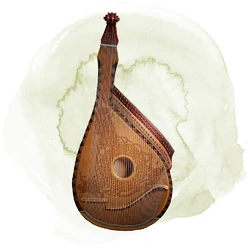
- Instrument of Illusions (Xanathar’s Guide to Everything): This item is not the most useful in most campaigns since it only makes illusions, but with some creativity, it can be very useful in the sort of campaign that your College of Whispers Bard will likely be in.
- Masquerade Tattoo (Tasha’s Cauldron of Everything): This magical tattoo effectively gives you one free use of disguise self a day, which can be very useful at early levels to help you infiltrate areas and get information.
Uncommon Magic Items
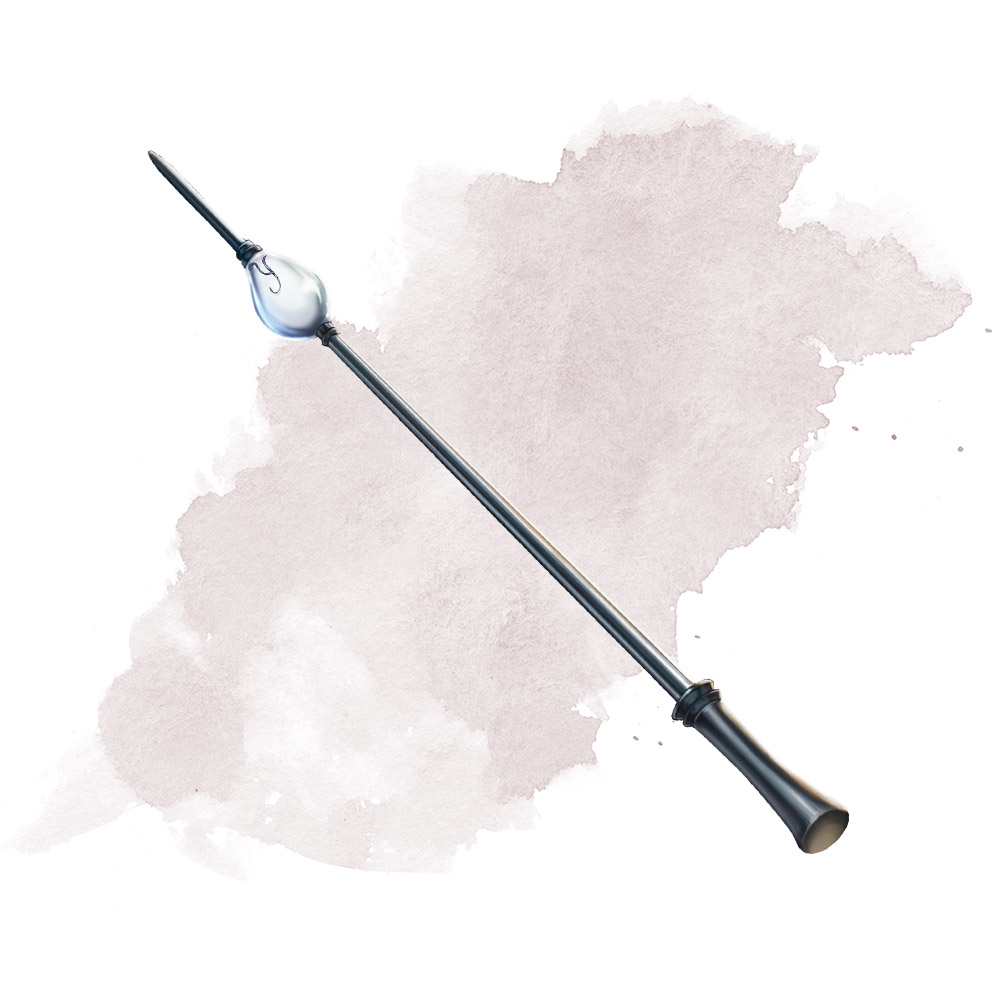
- Hat of Disguise (Dungeon Master’s Guide): The Hat of Disguise works similarly to the Masquerade Tattoo above but allows you to change the disguise, making it even more useful.
- Instrument of the Bards (Dungeon Master’s Guide): This magic item allows you to cast a select list of spells from outside the typical Bard spell list and even lets you cast them with your Charisma modifier. This is one of the best magical items for Bards, especially College of Whispers Bards.
- Wand of Detection (Dungeon Master’s Guide): This wand will allow you to use detect magic at will, which can help you discretely locate magic items across the various situations of your campaign.
Rare Magic Items
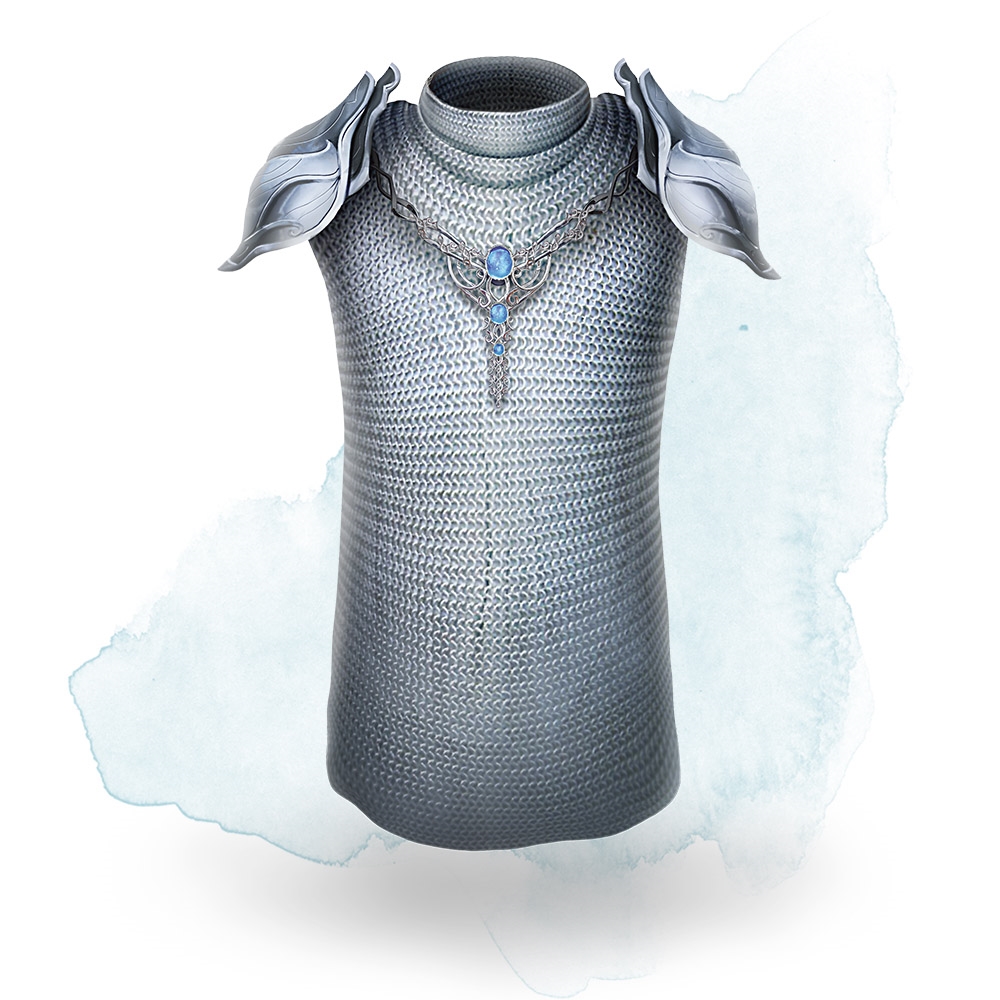
- Elven Chain (Dungeon Master’s Guide): This magic item will give you a serious boost to your Armor Class and is well worth tacking if your party’s more combat-centric members are already armored. It does have a lesser affect than some other items, but it doesn’t require attunement, allowing you to have more magical items equipped at once.
- Reveler’s Concertina (Tasha’s Cauldron of Everything): This instrument will increase the save DCs of your Bard spells, which can make you much more effective both inside and outside combat, primarily since your features use your spell save DC. It also comes with free use of a high-level spell which is always nice.
Very Rare Magic Items

- Tome of Leadership and Influence (Dungeon Master’s Guide): Charisma is your most important asset as a Bard, and this item will raise yours by two while also raising your maximum to 22, allowing you to get a +6 modifier, which will make just about everything you do more effective.
Legendary Magic Items
- Ioun Stone (Mastery) (Dungeon Master’s Guide): This Ioun Stone will increase your proficiency bonus, which will apply to many things, including the skills you rely on. If you pair this with expertise, you’ll get even more out of it, making sure you’ll be able to persuade your way through just about anyone.
- Scarab of Protection (Dungeon Master’s Guide): While defending yourself isn’t the highest priority for a College of Whispers Bard, the Scarab of Protection is a great way to get some extra spell resistances, which they tend to struggle with otherwise. It also doesn’t require attunement, so you can save your slots for items you need more frequently.
How to Play a College of Whispers Bard
Roleplaying
One of my favorite things to draw on while playing a College of Whispers Bard is the dichotomy of their personality. On the surface, you should act like a stereotypical Bard to seem unassuming or get in close with your targets. Meanwhile, beneath it, you are conniving and have a secret agenda you strictly adhere to. Maybe only your party sees the real you, or maybe you even hide it from them, arranging for it only to be revealed later on with your Dungeon Master.
While you are outside of combat, you should also make sure to take on the role of Face for your party. Your Charisma will undoubtedly be the highest in your party, and your focus on social skills will make you far more adept at handling NPC interactions than your allies. However, this means that you should be comfortable roleplaying before picking up this character, as most of your time playing will likely be spent talking in character.
When I’ve played a College of Whispers Bard, I also found it fun to focus on information and secrets. It made sense with the subclass’ flavor that my character was almost obsessed with having dirt on everyone they knew while also being willing to spare no expense to get valuable information, even if it wasn’t immediately useful.
Combat
No matter how hard you try, your College of Whispers Bard will likely end up in combat at some point. While the subclass is far from optimized for it, it can still hold its own. To do so, I recommend focusing on spellcasting unless you absolutely can’t. Using your Psychic Blades feature may seem tempting, but it is far less effective than your spells, even at early levels.
I also recommend not worrying too much about dealing damage during combat. While the College of Whispers Bard may not come with many unique support options, your general Bard features are still quite powerful.
You should be giving out Bardic Inspiration Dice frequently and using support spells to heal or buff up your allies.
If you do want to take offensive spells, though, I recommend keeping them in the subclass’ flavor by picking mental spells or sinister ones like Tasha’s hideous laughter or Dissonant Whispers.
FAQs
Question: What book is College of Whispers in?
Answer: The College of Whispers subclass for Bards is in Xanathar’s Guide to Everything.
Question: What classes multiclass well with College of Whispers Bard?
Answer: If you want to multiclass with the College of Whispers I recommend taking either Sorcerer (because of the shared Charisma spell ability) or Rogue (because of the added skill proficiencies).
Question: Is the College of Whispers Bard bad?
Answer: No, the College of Whispers subclass for Bards is far from being bad. However, it can only perform well in campaigns that aren’t solely focused on combat or dungeon crawls, so it may not be the right fit for your game.
- Steel Defender 5e Guide - September 5, 2022
- Harengon 5e Guide - August 24, 2022
- Shambling Mound 5e Guide: The Most Terrifying Plant - August 21, 2022

